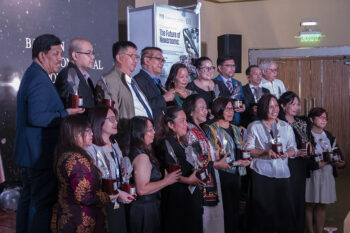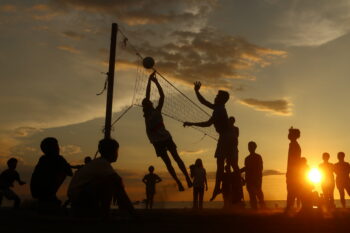
MATALAM, North Cotabato (MindaNews / 5 April) – From all indications Putin’s war in Ukraine has come to a “dangerous stalemate” as one military analyst would say. Dangerous, because it could lead to a protracted war knowing Putin as a man who doesn’t accept defeat, especially that he initiated this military aggression with minimal resistance and fast victory in mind. Unfortunately for Putin, this did not happen. But nothing could stand in the way between Putin and Ukraine. The man is now fighting to save his pride and possible military humiliation.
Russia appears to have abandoned, for now, the initial aim of its invasion of Ukraine, that is, seizing Kyiv and ousting the Ukrainian government of President Volodymyr Zelensky. Russian forces had withdrawn (or expelled by the Ukrainian army?) from the north of the country’s capital and increased the intensity of its attacks in the eastern and southern part of Ukraine. The withdrawal of the Russian forces, however, unearthed the ugly realities on the ground at how Putin’s army is implementing his orders.
In Bucha, a town located a few miles north of Kyiv, a team of Ukrainian soldiers and the media (CNN is one of them) found bodies of civilians strewn along the streets. Some of them were too graphic to be seen on television. The mode of execution seems to have a pattern: hands tied at the back and shot at the back of the head. Some corpses were found to be tortured before they were killed. Still another was shot while riding his bicycle and falling down with his potatoes scattered by the roadside.
In the east Russia will try to secure the Donbas region from being retaken by the Ukrainian forces. After all, the Kremlin had, in February, recognized Lugansk and Donetsk as independent small states. In the south Russia will try to capture the cities of Mariupol, Melitupol, and Kherson to establish land-based connection between the Crimean peninsula, a region annexed by Russia in 2014, and mainland Russia. There are indications, too, that Russia may also be interested to capture Odessa, Ukraine’s bustling port city in the south. This seems to rationalize the constant bombing of Mykolayiv, an adjacent city northeast of Odessa.
Putin’s invasion of Ukraine is starting to look like Stalin’s invasion of Finland which lasted from November 1939 to March 1940. Feeling the fierce resistance put up by the Finnish army, Stalin utilized the full military might of Russia to gain a small portion of Finland’s territory but only at great cost and humiliation.
This is called a pyrrhic victory – a military victory that is not worth winning because so much was lost to achieve it. In business it could be termed as unprofitable because the production cost is more than the expected gains or benefits. The word comes from the name of Pyrrhus, a long ago king of Epirus, who suffered heavy losses in defeating the Romans in the battle of Asculum in Apulia in 279 B.C.
Putin’s invasion of Ukraine proved to be hugely costly for Russia in terms of both human losses and destruction to military hardware in the face of fierce Ukrainian resistance that was far tougher than the Kremlin expected.
Military analysts have noted that Russia’s spring draft started as early as April 1, 2022. While Moscow insists that conscripts (young recruits) were not sent to Ukraine, the evidence show otherwise. Some captured Russian soldiers were as young as 17 and 18 years old. Conscripts, though, may enter battle once they sign contracts and are trained.
If the Russia-Ukraine war would eventually become a long war of attrition, military analysts say, it would be dangerous for Russia given the success of the Ukrainian guerilla tactics as seen in the past two weeks. “If this becomes a prolonged war of attrition, Ukraine seems overall in a more favorable position,” said Michael Koffman, Director of the Russia Studies program at the Center for Naval Analyses, U.S.
The longer the war grinds on, the more the Kremlin is expected to press one of its favorite tactics of dividing the West between those states who take the hardest line against Russia and those with more conciliatory stances such as Belarus, Georgia, and Hungary. Putin, on Monday (April 4) was quick to congratulate one of his closest allies within the European Union, Hungarian Prime Minister Viktor Orban, after his party won elections that saw him gain fourth term in office.
If a ceasefire is to be achieved under the present situation with the principle of “keep what you hold,” Russia could retain its hold on several new parts of Ukraine such as the cities of Kherson, Mikolayiv, about one-half of Kharkiv and the regions of Donetsk and Lugansk. However, no ceasefire could hold for long if there are no strong third party mediators like the U.S., China, France, Canada and Australia.
How will Ukraine be able to sustain a strong defense against Russia in case of a long protracted war?
Three things: First, is the Ukrainian spirit concretized by a fast growing nationalism and patriotism as a result of unjustified Russian invasion of Ukraine on February 24 this year. Ukrainians do not want to be seen as “little Russia” anymore. This is an actual diminutive used on the Ukrainian nation – Malorussiya, or little Russia. Ukrainians collectively decided to be distinct from Russians around the time of Spring of Nations in the spring of 1848. The Spring of Nations was a series of political upheavals throughout Europe starting in 1848. It remains the most widespread revolutionary wave in European history to date.
Second, is the NATO training for the Ukrainian military which began in 2014. As an aftermath of Russia’s annexation of the Crimean peninsula Ukraine has been swarming with NATO trainers since early 2014. To a certain extent, NATO has taken the art of war and turn it into an industry.
And third, the Russian conscripts are obviously fighting the old way, with little training and heavy-handed top-down chain of command where Putin’s personal preferences and his Generals’ biases and military genius (or idiocy) dictate what is going to happen on the ground. This may be good if the Russian troops on the ground have an overwhelming firepower at their disposal or an enemy that fights the same way.
However, in this war, the Russians are fighting an enemy that is way ahead in military thinking bolstered by the so-called “home-court advantage.” Despite such advantage by the Ukrainian forces Putin will insist on a victory however small. Putin is ready to accept even a pyrrhic victory that he can pomp on May 9 – a national celebration in Russia marking its victory over the German Nazis. Anything Putin can call “victory” for the May 9 celebration show would matter.
Putin’s propaganda machine at home is grinding everyday as sustained by the state-controlled media. He has successfully painted that everything that Ukrainians and their officials say is nothing but fake. A married woman, who used to call his father in Russia to update him about the hardships they were going through as a result of non-stop shelling of population centers by Russian soldiers, gets the same yelling answers: “stop telling me lies; I hear you and so you are alive!”
Putin is the real master of deception, a blatant liar, and an illusionist.
(MindaViews is the opinion section of MindaNews. Maugan P. Mosaid holds a doctorate degree in rural development. He is a freelance writer, planning consultant and teaches Statistics and Methods of Research in the graduate school.)







